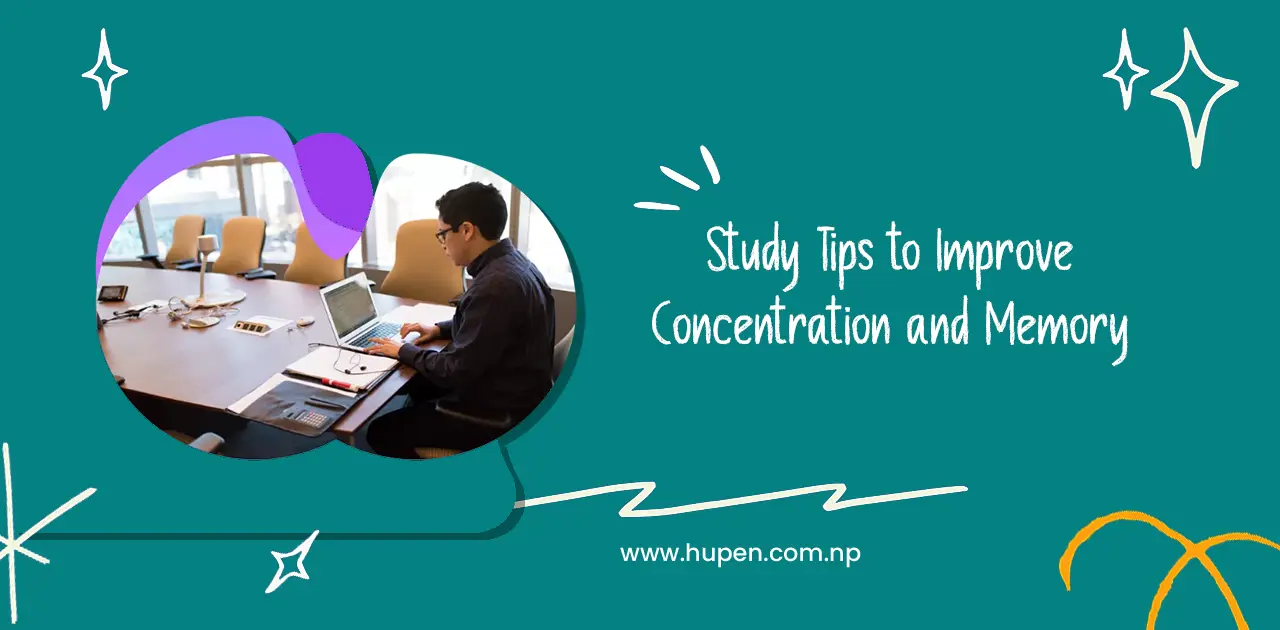Top Study Tips to Improve Concentration and Memory
Staying focused while studying can be challenging, especially with so many distractions around. However, improving your concentration and memory isn’t just about studying harder — it’s about studying smarter. Here are some effective tips that will help you sharpen your focus and boost your ability to remember what you learn.
1. Create a Distraction-Free Study Environment
A clean and quiet study space helps your brain concentrate better. Turn off unnecessary notifications, keep your phone away, and organize your desk before you begin. A clutter-free space often leads to a clutter-free mind.
2. Use the Pomodoro Technique
The Pomodoro Technique involves studying for 25 minutes and taking a 5-minute break. After four sessions, take a longer break (15–30 minutes). This method prevents burnout and improves mental stamina.
3. Get Enough Sleep
Sleep plays a vital role in memory consolidation. Make sure you get 7–8 hours of quality sleep each night. Avoid late-night cramming sessions that can exhaust your brain and reduce focus.
4. Stay Hydrated and Eat Brain-Boosting Foods
Your brain needs proper nutrition to function efficiently. Include foods rich in omega-3 fatty acids, antioxidants, and vitamins like walnuts, blueberries, fish, and leafy greens. Also, drink enough water throughout the day to keep your mind alert.
5. Practice Active Learning
Instead of just reading notes, try teaching the material to someone else or summarizing it in your own words. This technique reinforces memory and helps you understand concepts deeply.
6. Use Mnemonics and Visualization
Mnemonics are memory aids that help you recall information easily — for example, using acronyms or rhymes. Visualization also works great — imagine vivid mental images to remember facts or concepts.
7. Exercise Regularly
Physical activity increases blood flow to the brain, enhancing concentration and cognitive performance. Even a 20-minute walk can make a noticeable difference in your focus.
8. Set Clear Goals and Study Schedules
Having specific goals like “complete two chapters today” gives direction and purpose. Create a timetable that fits your energy levels — study tougher subjects when you feel most alert.
9. Take Short Breaks
Don’t study for long hours without rest. Short breaks help refresh your mind and prevent fatigue. Step outside, stretch, or listen to calming music to recharge.
10. Practice Meditation and Mindfulness
Meditation trains your brain to stay focused in the present moment. Just 10 minutes of mindfulness practice daily can improve attention span, reduce anxiety, and enhance memory retention.
Final Thoughts
Improving your concentration and memory takes time and consistency. Combine these techniques with a healthy lifestyle and positive mindset to make your study sessions more productive and enjoyable.
Remember: it’s not about how long you study, but how effectively you study.

